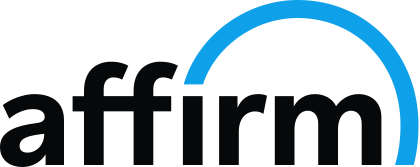 In 2025, the pursuit of a new career will be a dominant theme among mid-level professionals. As industries evolve with technological advancements and changing economic landscapes, the opportunities for career transitions are growing. Understanding the modern job market and developing a strategic plan are essential for successfully navigating this journey.
In 2025, the pursuit of a new career will be a dominant theme among mid-level professionals. As industries evolve with technological advancements and changing economic landscapes, the opportunities for career transitions are growing. Understanding the modern job market and developing a strategic plan are essential for successfully navigating this journey.
The job market is expected to experience significant growth in key areas. According to the U.S. Bureau of Labor Statistics, approximately 4.7 million new jobs will be added by 2032, bringing total employment to 169.1 million. Industries such as healthcare, technology, and renewable energy are driving this expansion. These sectors offer a range of opportunities for professionals equipped with transferable skills, such as leadership, communication, and project management.
So, how does one execute such a new career move?
A thoughtful career transition begins with self-assessment. This step involves evaluating your strengths, interests, and values to identify roles that align with your long-term aspirations. Self-assessment tools, such as personality and aptitude tests, can provide valuable insights. Additionally, consulting with a career coach can help clarify career goals and identify paths that match your unique skill set and experience.
To remain competitive in today’s hyperspeed job market, professionals must prioritize skill development. If pursuing a new career, start by researching the competencies in demand within your target field. Whether it’s technical skills, such as coding or data analysis, or soft skills, such as emotional intelligence and adaptability, expanding your skill set is a critical step. Platforms such as Coursera, edX, and LinkedIn Learning offer online courses to help you stay ahead of the curve. Certification programs are particularly valuable, as they demonstrate your commitment to professional growth and provide credentials recognized by employers.
Networking is another cornerstone of a successful transition to a new career. Building relationships within your target industry can open doors to hidden opportunities and provide insights into emerging trends. Attend industry-specific conferences, participate in professional associations, and engage in online networking communities. Informational interviews are a powerful tool for gaining first-hand knowledge of roles and organizations. Effective networking not only expands your opportunities but also strengthens your understanding of the market.
When it comes to crafting a resume and cover letter, there is no substitute for working with a professional resume writer. A skilled writer brings an understanding of nuance, customization, and industry trends to the table—qualities that templates and automated tools cannot replicate. Professional resume writers also also trained in identifying and communicating where you uniquely match that new career goal and tailor your documents accordingly so that it resonates with hiring managers. This level of personalization ensures that your application materials stand out in a crowded job market and aligns with the expectations of applicant tracking systems (ATS).
Researching industry trends is an important step in positioning yourself for a new career. For example, the transition to remote and hybrid work models has heightened the need for proficiency in virtual collaboration tools. Additionally, industries such as clean energy and green construction are gaining momentum due to increasing focus on sustainability. By aligning your skills and career objectives with these trends, you can better prepare for opportunities in growing sectors.
And now some bad stuff
Scammers have unfortunately become a common hazard in the digital age, especially with the rise of remote work. As a new career job seeker, you must remain vigilant when evaluating job postings and offers. Common signs of scams include requests for upfront payments, vague job descriptions, or promises of unusually high salaries for minimal responsibilities. Always verify the legitimacy of employers through official websites, reputable review platforms, or LinkedIn company pages. Trust your instincts—if something seems questionable, it’s better to steer clear. Because if it sounds too good to be true, it likely is.
Some of the most well-known scams include fake job postings that request money for training materials, certifications, or equipment. Legitimate employers will never ask for payment as part of the application or hiring process for your new career venture. Another red flag involves scammers requesting personal banking information or account numbers under the pretense of setting up direct deposit before any formal hiring paperwork is completed. Sharing such sensitive information prematurely can lead to identity theft or financial loss.
Job seekers should also be wary of interview scams. One common tactic involves conducting interviews exclusively via text messages or obscure platforms instead of through professional video conferencing tools like Zoom or Microsoft Teams. While legitimate companies may occasionally use text to confirm details, a lack of any live or structured interview process is often a sign of a scam. Another variation includes interviews where the “employer” quickly offers a job without asking meaningful questions about qualifications or experience, signaling a lack of due diligence on their part.
Scammers also take advantage of new career seekers by using fake company names or mimicing real organizations to appear credible. Always cross-check the contact information provided in a job listing with the company’s official website or LinkedIn page.
Embarking on a new career requires persistence, adaptability, and a commitment to personal and professional growth. By engaging in self-assessment, prioritizing skill development, and leveraging professional resources, you can set yourself on a path toward a fulfilling and rewarding career. The journey may be challenging, but each step brings you closer to achieving your aspirations. Remember, your career is a reflection of your values and goals—make it a true representation of your potential.















